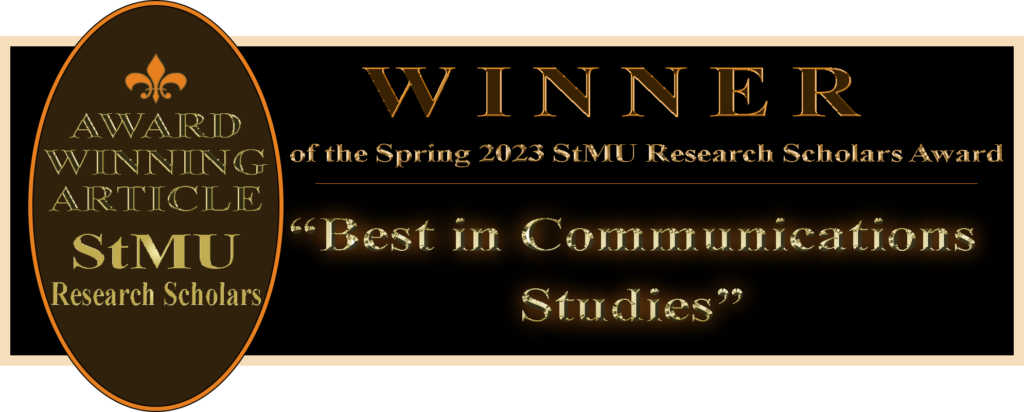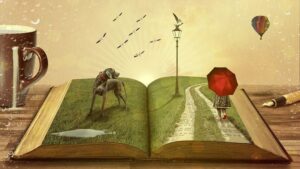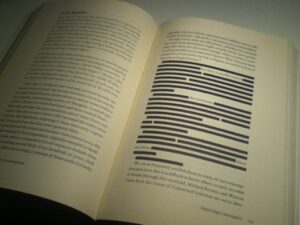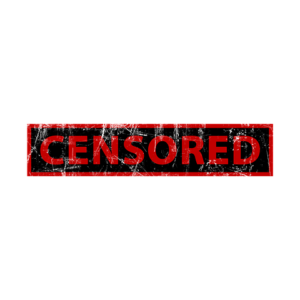

I grew up reading. When my grandparents wanted to go on a special outing with me, we went to Barnes and Noble to pick out a good book. Now, when my sister and I want to go out together, we stop by a Half Price Books looking for something we haven’t read. I spent most of my free time growing up in my school libraries and every weekend (sometimes twice if I really begged) my dad took me to the public library around the corner. Books have shaped who I am. They have provided me with a safe place to learn and question.
I chose the topic of Book Banning because one of my Professors sent me an email with the alarming statistics of books that have either been banned or are being challenged. It’s scary to realize that we aren’t living in a society where intellectual property is respected. Book bannings are a direct attack on the essence of the United States- individualization and personal expression. In the United States is driven by a complex set of factors, including moral and religious concerns, political ideologies, concerns about offensiveness, protection of children, and lack of understanding or misinformation. However, it is important to note that book banning often raises significant issues related to free speech and intellectual freedom, and many individuals and organizations work to promote the freedom to read and access to a wide range of ideas and information.
Here is what Book Banning Looks Like Today

Book bannings as defined by PEN American, a 100 year old non-profit organization dedicated to fighting censorship, “as any action taken against a book based on its content and as a result of parent or community challenges, administrative decisions, or in response to direct or threatened action by lawmakers or other governmental officials, that leads to a previously accessible book being either completely removed from availability to students, or where access to a book is restricted or diminished.” There are many ways to look at book banning. If I’m an adult not all that interested in reading books, I may not feel very affected by it. However, there is one type of book banning that may have affected all of us at one point in time, that’s the censorship taking place in school libraries, school classrooms, and school districts.
When discussing the curriculum or what books are made available at school libraries, the practices of collection maintenance and weeding are followed. These guidelines are published by the American Library Association (ALA) in order to provide policy on what resources should be available in libraries. School libraries annually inventory to “determine losses and remove damaged or worn materials”. Librarians also consider the collection of materials and evaluate whether or not the are relevant to the curriculum. Librarians at universities will also do this and in addition evaluate if the material aligns with the university’s mission and needs 1. This systematic appraisal allows for regular updates to library collections in a safe and democratic way. The general public doesn’t often realize these types of updates happen as a routine part of a librarians responsibility. If content is banned legislatively, or is not aligned with the mission of the library owner, then removal is encouraged.
The three main themes of books that have been challenged are race and racism, LGBTQ+ representation, and sexually explicit content. The ALA poll shows that the majority of public school parents believe in making this content available on an age appropriate basis. 84% of voters believe that works focused on the the role of slavery and racism in forming America should be present. This includes works such as as the “1619 Project” and literature that use racial slurs like “Huckleberry Finn,” and “To Kill a Mockingbird”. Similarly 68% of voters agree that novels for young adults like “Ghost Boys” and “The Hate U Give” that show violence against black people are necessary to have available. 65% of voters agree that fiction and non-fiction books about lesbian, gay, and transgender individuals, such as “George” and “This Day in June” should be present in public and school libraries. And 57% of voters think that books like “Beloved” and “Looking for Alaska” that are fiction and have sexually explicit content, including scenes of sexual violence should be included in the library catalog.
In a poll published by YouGov in collaboration with CBS News, more than 8 out of 10 Americans don’t believe you should ban books for discussing race or criticizing U.S. history. This 2022 survey “was conducted with a nationally representative sample of 2,494 U.S. adult residents interviewed between February 15-18, 2022”. In an innovative approach, the ALA created a poll focusing on public and school libraries. This poll highlighted the “ near-universal high regard for librarians and recognition of the critical role that public and school libraries play in their communities.”2
The ALA poll shows that “7 in 10 voters oppose efforts to remove books from public libraries, including majorities of voters across party lines”. It also demonstrates that 74% of public school parents trust that school librarians make good decisions on what books are available for their children. In a breakdown of political parties, the ALA survey shows that 71% of voters oppose efforts to have books removed from their local public libraries. This includes 75% of Democrats, 58% of independents, and 70% of Republicans who voted. These findings exhibit that a wide spectrum of voters are concerned with the movement to ban books from school and public libraries.
Despite these statistics when I open up my news tab it feels like there are so many people protesting books in school and public libraries. The ALA identifies that more than 330 unique cases of book bans and challenges were reported between September 1st and November 30th of 2021. These totals have been drastically increasing since 2019 and continue to increase into 2023. However it is not just students and parents who are affected, it is also librarians and library staff who are impacted.3
In the New York Times article, “With Rising Book Bans, Librarians Have Come Under Attack“, reporters Elizabeth A. Harris and Alexandra Alter tell the story of Martha Hickson. Hickson is a high school librarian in Annandale, New Jersey whose library has recently been called into question by parents in local school board meeting. In the school board meeting, Hickson was called out by name by a parent reprimanding her for letting the parent’s 16 year old check out books with queer characters. In the meeting parents hurled accusations that the librarians were “grooming” their children.

Another point discussed in this article is the misnomer that all librarians are liberal. Carolyn Foote, founder of the group Freedom Fighters, which organizes to defend librarians and a retired librarian confronts this idea stating that curating a well rounded selection of books is not partisan it is a matter of professional ethics. Challenging books in public schools has become a destructive trend intent on limiting librarian’s jurisdiction. Book bannings violate librarians’ ability to exercise their expertise.
Patricia Wong, ALA President, discusses that the ALA survey and subsequent article, “Large majorities of voters oppose book bans and have confidence in libraries” saying the “survey results confirm what we have known and observed: that banning books is widely opposed by most voters and parents”. She follows that she is “thrilled to see that parents have a high degree of confidence in school libraries’ decisions about their collections and very few think that school librarians ignore parents’ concerns. This truly validates the value and integrity of library professionals at a time when many are feeling burnt out because of accusations made by small but loud groups.”4
So what can we do to support our librarians and democracy in our education?
Please pay attention to the news. Even if it isn’t your state or school district, it is someone’s. Get involved in local organizations and libraries that are working against this type of censorship.
This is a link to a list of organizations: https://libguides.law.uconn.edu/c.php?g=345484&p=2327933 Get in touch with a local librarian and see what they need/recommend.
Lastly, READ BANNED BOOKS.
The ALA Banned & Challenged Books website encourages participation in Banned Books Week (September 26- October 2) by reading and discussing a banned book. Banned Book Week has existed since 1982. An effort of bookstores and libraries to create space for read-outs of banned and challenged books.
Resource:
https://www.ala.org/advocacy/bbooks/frequentlychallengedbooks/top10

- American Library Association. Collection Maintenance and Weeding, (ALA, 2018) ↵
- American Library Association. Large majorities of voters oppose book bans and have confidence in libraries, (ALA, 2022) ↵
- Elizabeth A. Harris and . With Rising Book Bans, Librarians Have Come Under Attack, ( New York Times, 2022) ↵
- American Library Association. Large majorities of voters oppose book bans and have confidence in libraries, (ALA, 2022) ↵




31 comments
Xavier Bohorquez
Congratulations on the award for best article in Communication Studies. This topic was something I learned this year and you have chosen the best way to bring attention to the topic. Since it is an area of debate currently, I’m glad to see well-thought-out information and points brought up in the article. Book banning is something that is beyond disgraceful, and with your own review and understanding of it, I’m glad that this won the award.
Emilee Luera
Congratulations on an excellent work. Book banning is a major issue that is now making headlines. It’s interesting that books are strating to be threatened, and it’s not uncommon for it to be a problem for people now a days. It’s comparable to the authority over admitting and forbidding books. Because, if we look throughout the world, books are not illegal in every country. Books are a great source of information, that help individuals in many ways especially for school.
Carlos Alonzo
Book banning in public schools and libraries is a complex and controversial issue that you presented well. I think that there should be balance between censoring material and promoting critical thinking. There’s definitely ways to encourage an open dialogue while also respecting each others different perspectives.
Sudura Zakir
Awesome work and congratulations. Book banning is one of the major issues going on and it’s on headlines everywhere now. It is ridiculous that books are under attack which is not usual. It’s like authority over allowing and banning books which I am not familiar with that much. Because books are not banned in all parts of the world if we look globally. Books are the source of knowledge but they are banned for diverse reasons which is bad luck for future generations.
Christian Lopez
For such a prevalent issue many people tend to look at just headlines and not the actual story. Reading article like this make it seems less like a right vs left issue, and more of an issue that is affecting all parents and children alike. This was well formulated and beautify written, I understand fully why this received an award.
Analyssa Garcia
Hi Sophia,
Congratulations on your award for Best in Communication Studies, it is clearly well deserved! I cannot emphasize enough how important this topic is. I appreciate the research that went into this and the obvious care you have for books. What is happening today is seriously ridiculous and I hate that our books are under attack. I also work with groups organizing against banning books, which is a lot of work. Thank you for sharing these great resources.
Carollann Serafin
Book banning is a topic I never thought we would have to debate over or even consider thinking about. With the changes in the world today I personally feel this article is well wrote and brace the opinion that banning books is a form of limiting what children can grow to learn as well as erasing portions of history.
Mia Garza
This is a well-written article about the problems that book banning causes in education and society. It is important to recognize that book banning threatens intellectual freedom and the free exchange of ideas by limiting people’s access to information and preventing them from exploring different points of view and questioning their own beliefs. Overall, this was a great article that was enjoyable to read.
Aaron Astudillo
Congratulations on the nomination. I love the topic you have chosen, especially since it is an area of debate currently. This topic of book banning is one that is heinous, as it limits the amount of knowledge that is dispersed to the general public. Thus, your in-depth review, when taking into consideration democracy is interesting and critical.
Karicia Gallegos
Congratulations on your nomination! The issue of book banning is a complex and concerning one. It is alarming to hear that so many books have been banned or challenged, especially in a society that values free speech and individual expression. It is important to recognize that book banning poses a threat to intellectual freedom and the free exchange of ideas. It limits people’s access to information and can prevent them from exploring diverse perspectives and challenging their own beliefs. Overall, great job!